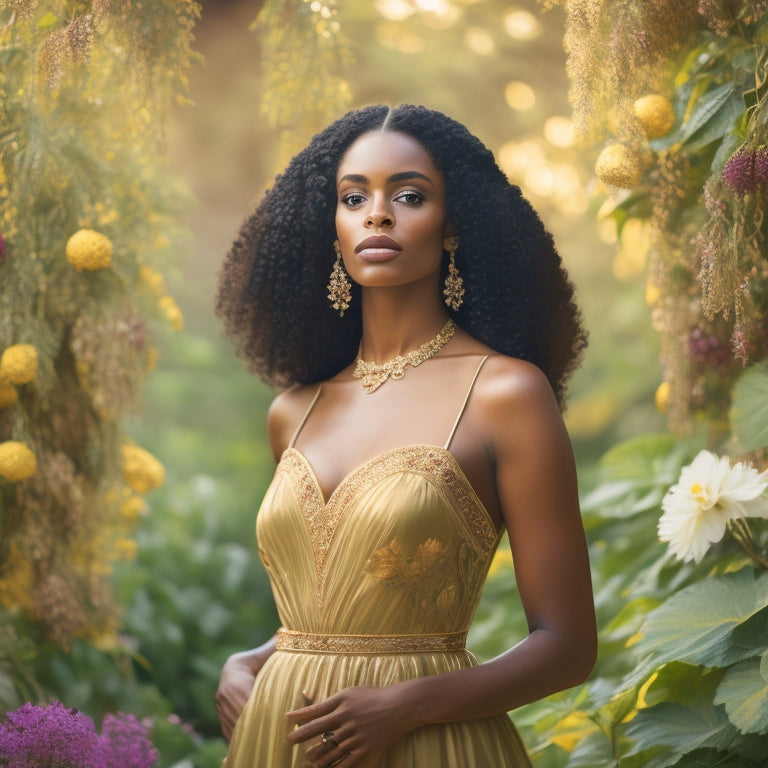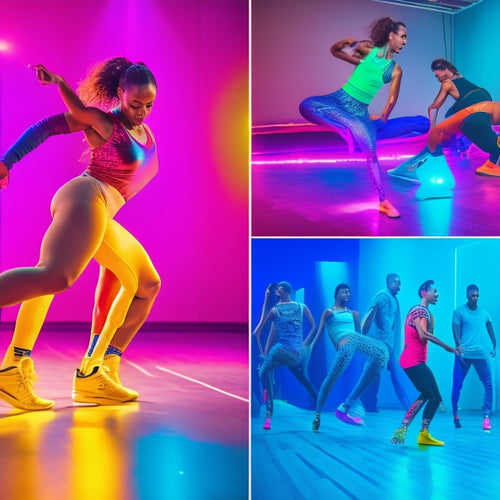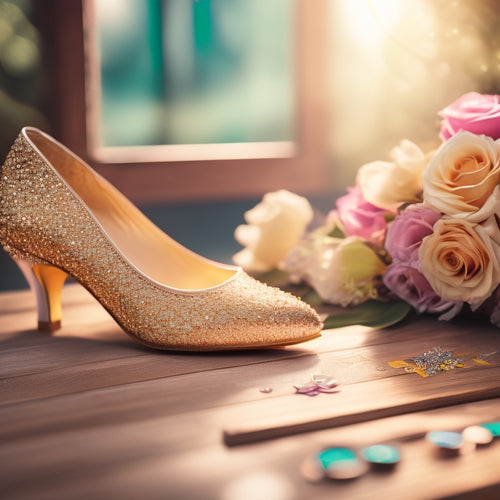
Femininity: A Potent Force to Reckon With
Share
As I navigate the intricate landscape of femininity, I've come to realize that it's not just a set of societal expectations, but a potent force that can either empower or suffocate, depending on how I choose to wield it. I've learned to recognize the delicate balance between conforming to societal norms and expressing my individuality. The pressure to adhere to unspoken rules of womanhood can be exhausting, but embracing my authentic self has been liberating. As I continue to unpack the complexity of femininity, I'm discovering that true power lies in embracing my natural features and imperfections - and I'm just beginning to understand the depths of this potent force.
Key Takeaways
• Femininity is a powerful tool for self-expression and empowerment, but it's often stifled by societal expectations and norms.
• Embracing authentic femininity requires liberation from these expectations, allowing women to reclaim their individuality and self-worth.
• The performance of femininity is a delicate balance between conforming to societal standards and expressing one's true self, often leading to feelings of exhaustion and loss of identity.
• True feminine power lies in embracing and loving one's natural features and imperfections, rather than trying to conform to unattainable beauty standards.
• By unpacking the complexity of femininity and its intricate web of societal expectations and cultural norms, women can tap into their authentic selves and become a potent force for change.
The Performance of Femininity
As I reflect on my own experiences, I've come to realize that femininity isn't an inherent trait, but rather a performance that women are socialized to perfect from a young age. This performance is a delicate dance between conforming to societal expectations and asserting individuality.
Femininity as art is a powerful tool for self-expression, allowing women to reclaim and redefine traditional norms. However, femininity as resistance is often met with criticism and backlash. In media and politics, femininity is often reduced to a narrow, stereotypical definition, perpetuating harmful gender roles.
Societal Pressures and Expectations
I've always felt suffocated by the unspoken rules of womanhood, where every aspect of my appearance and demeanor is scrutinized and judged against societal standards of femininity. It's exhausting trying to conform to these expectations, only to feel like I'm losing myself in the process.
Beauty standards dictate that I must be pretty, but not too pretty, or I'll be seen as vain.
Self-expression is encouraged, but only within the confines of what's deemed 'feminine.'
Societal norms tell me that I must be nurturing and caring, but not too assertive or independent.
My personal identity is constantly being shaped and reshaped to fit into the mold of what's considered 'feminine.'
I'm expected to walk the fine line between being confident and not being 'too much' - all while maintaining a sense of vulnerability and softness.
Navigating Gender Roles
Every day, I'm forced to navigate the treacherous landscape of gender roles, where societal expectations of femininity and masculinity converge, collide, and constantly shift. I'm constantly torn between conforming to traditional gender stereotypes and expressing myself authentically. The pressure to adhere to societal norms is suffocating, and I'm left wondering what it means to be a woman in today's society.
| Gender Roles | Societal Expectations | Personal Expression |
|---|---|---|
| Traditional femininity | Makeup, grooming, and appearance | Self-expression through fashion |
| Masculinity | Strength, aggression, and dominance | Self-expression through sports |
| Non-binary | Fluidity, androgyny, and individuality | Self-expression through art |
As I navigate this complex web of gender roles, I'm acutely aware of the impact it has on my self-expression and societal impact. I'm torn between conforming to traditional gender stereotypes and expressing myself authentically, all while trying to avoid perpetuating harmful gender norms.
Embracing Authentic Femininity
Few things are as liberating as shedding the societal expectations of femininity and embracing an authentic, unapologetic version of myself. I've learned that true feminine empowerment lies in self-acceptance, not in conforming to beauty standards or societal norms. By breaking free from these constraints, I've discovered a sense of freedom and confidence that I never thought possible.
I've stopped trying to fit into someone else's idea of femininity.
I've learned to love my natural features, imperfections and all.
I've realized that my worth isn't tied to my physical appearance.
I've embraced my individuality, even when it doesn't conform to traditional beauty standards.
I've found solace in being unapologetically myself, without the need for validation from others.
In doing so, I've tapped into a potent force within myself - one that's authentic, empowered, and unapologetically feminine.
Unpacking the Complexity
As I delve deeper into the concept of femininity, I'm struck by the intricate web of societal expectations, personal experiences, and cultural norms that shape our understanding of what it means to be feminine.
It's a complex dance between feminine empowerment and societal norms, where women are expected to conform to certain standards of beauty and behavior.
Gender dynamics play a significant role, as boys are often socialized to fear femininity, and girls are pressured to perform it.
My personal experiences have taught me that embracing authenticity is key to accessing true feminine power.
Frequently Asked Questions
Can Femininity Be Separated From Societal Beauty Standards?
I wonder if femininity can be separated from societal beauty standards, or if it's inherently tied to them. Can I find empowerment through embracing my own beauty, or does that perpetuate harmful gender roles that stifle self-expression?
How Does Femininity Intersect With Other Aspects of Identity, Such as Race?
Growing up, I noticed how my Georgian grandmother's femininity was intertwined with her cultural heritage, making her a strong, proud woman. This intersectionality reveals how femininity intersects with race, influencing power dynamics and amplifying marginalized voices.
Are There Universal Characteristics That Define Femininity Across Cultures?
As I explore the complexities of femininity, I wonder if universal characteristics exist across cultures; despite cultural differences, I find cross-cultural similarities in the pressure to conform to societal beauty standards and the performance of femininity.
Can Men Embody Femininity, and What Does It Look Like?
As I ponder the question, I realize that men can indeed embody femininity, challenging traditional gender roles and societal expectations that often confine masculinity to narrow, rigid definitions.
Is Femininity Only Applicable to Cisgender Women, or Is It More Inclusive?
I believe femininity extends beyond cisgender women, embracing transgender inclusivity and gender fluidity; it's a spectrum where individuals can express and embody femininity, regardless of gender identity, without conforming to societal norms or expectations.
Related Posts
-

3 Ways to Monetize Your Dance Expertise Online
You can harness your dance expertise into a lucrative online business by leveraging your skills in three key ways. Yo...
-

Best Adidas Dance Shoes for Unbeatable Moves
If you're looking for the best Adidas dance shoes to boost your performance, focus on models that offer superior grip...
-

Get Your Dancing Feet Wedding Sign Now
A custom 'Get Your Dancing Feet' wedding sign is a unique way to reflect your personal style and share your love stor...


